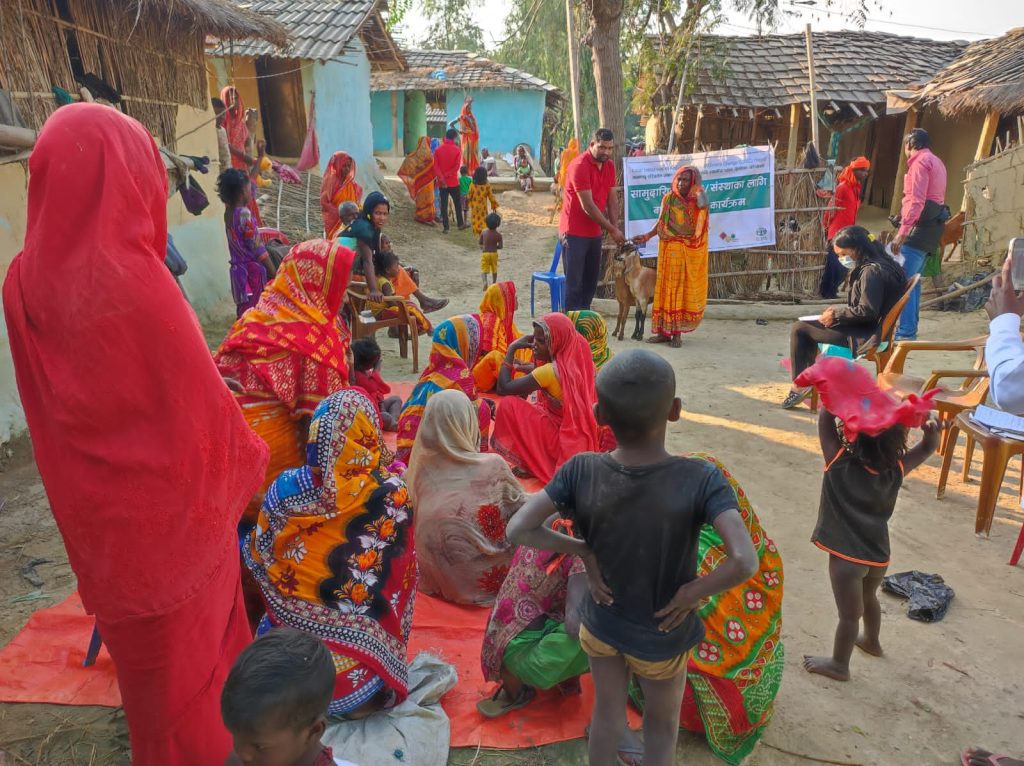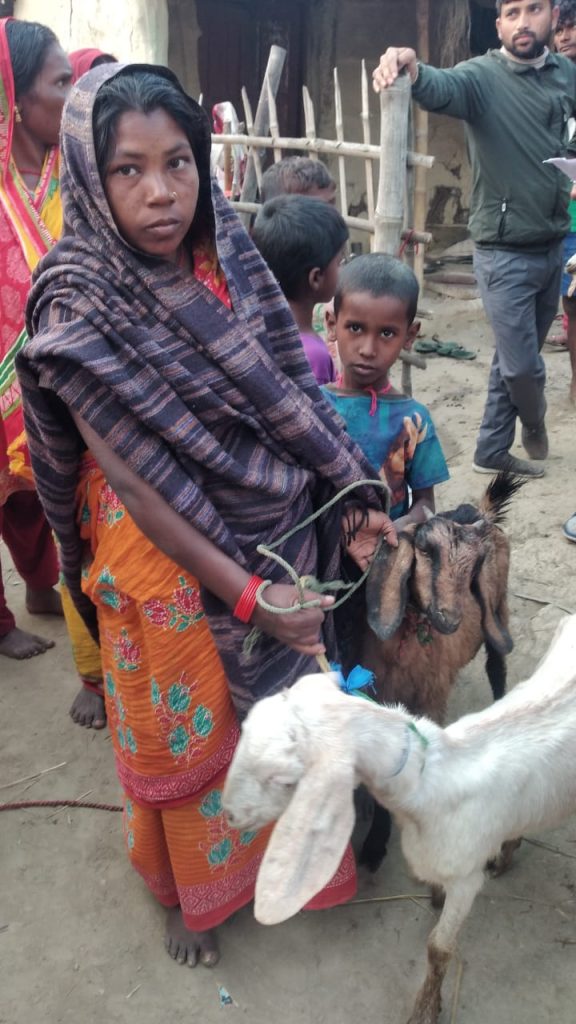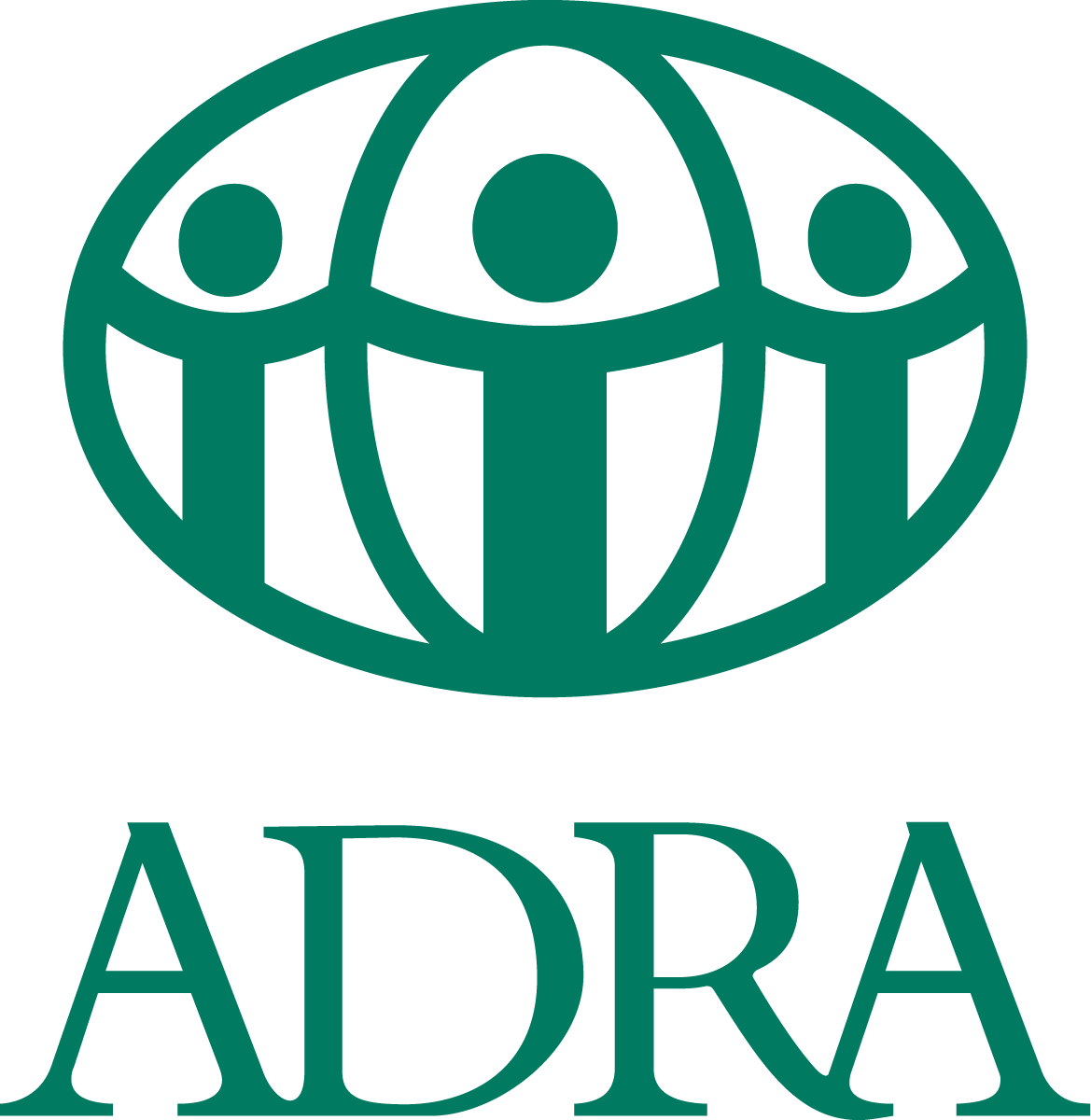

The ‘Local Initiative to Reduce Impact of Climate Change’ (LIRIC) project is being implemented in six local levels of the Mahottari and Dhanusha districts of Madhesh province, Nepal. A total of 87 Civil Society Organizations (CSOs) were formed to implement projects in community, however the economic and social situation of each CSO is not equal. Some of them are in an economically good condition whereas some of them are landless. Out of 87 CSOs, the LIRIC project is working with 7 landless CSOs which are economically and socially deprived. Some common features of those landless CSOs are, economically poor, ethnically excluded groups (6 Mushahar and 1 Muslim) having no land, seasonal and are at the bottom of the social pyramid. Due to these features, they face multiple discrimination. However, there is still hope. In discussions between LIRIC project staff and the landless CSOs about potential support from a project to enhance their livelihood options, a goat was found to be the most convenient and suitable to them.
The LIRIC project has provided 110 landless families with a couple of goats from local breeds which are more resilient climatically. They require fewer skills to rear, can be raised nearby house premises without leaving daily work and can easily be sold which makes them suitable for enterprise. Each family is expecting to ‘multiply’ the goat they received to potentially increase their annual income by around NR12,000 in the future. In addition, the project is also providing technical training to them through the climate field school model.
The LIRIC project is funded by European Union and the Austrian Development Cooperation.
![]()




